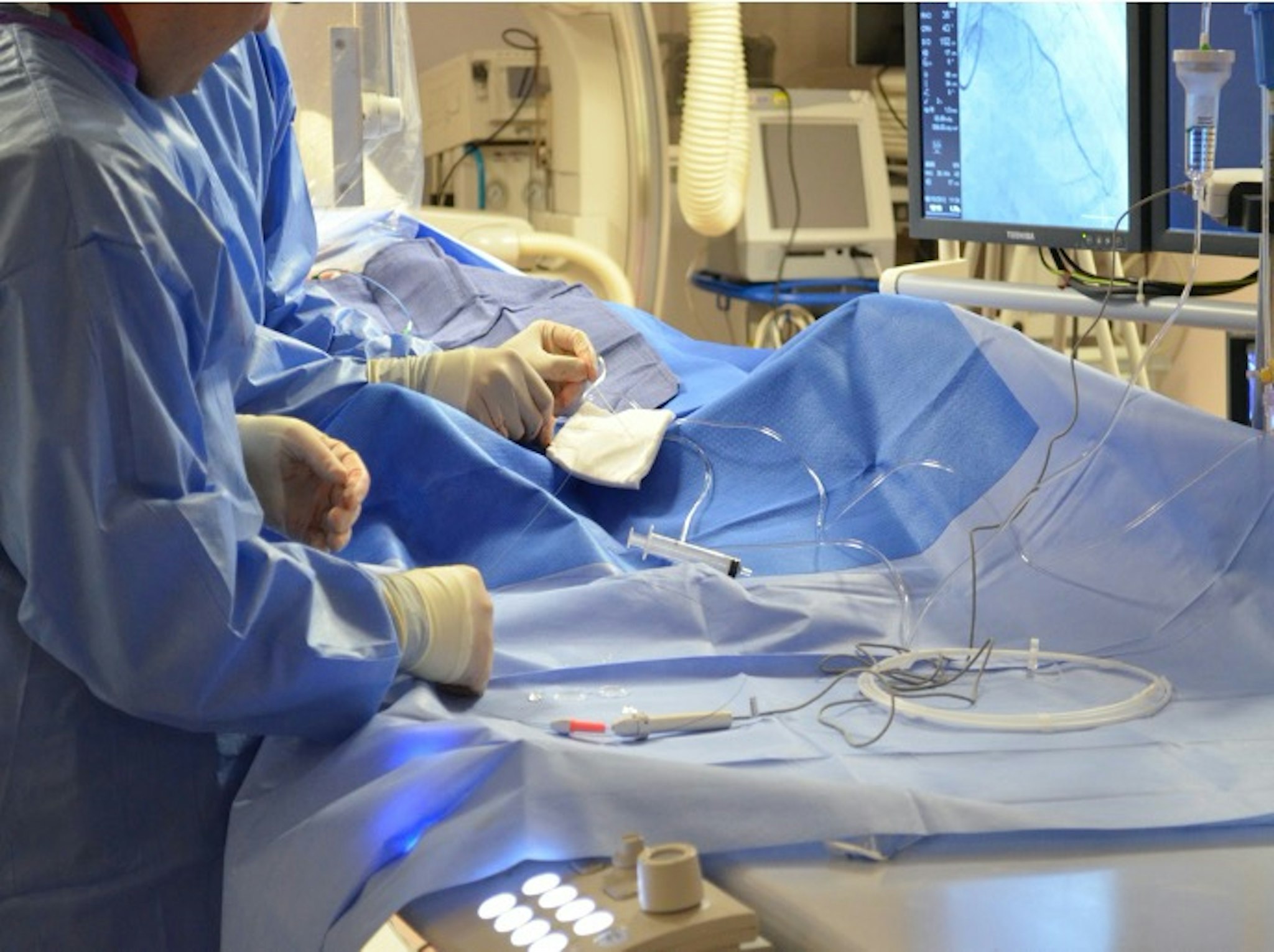
Intracoronary Guidance in Complex PCI


Highlighted Event
Intracoronary Guidance in Complex PCI
- 8H
Welcome to the Intracoronary Guidance in Complex PCI Course.
Last year, the first two editions of the Intracoronary Guidance in Complex PCI were held in Madrid, bringing together experts from different continents to share, over two days, practical knowledge and expertise on how to address clinical or anatomical challenges in PCI. We keep a vivid memory of the very active discussions that took place over lectures and live cases, during the session breaks and at dinner; we enjoyed the time, being unaware of how fortunate were in engaging in face to face discussions. Of course, at that time we could not imagine that, one year later, large and small presential scientific events would be virtually non-existing due to the emergence of a large pandemic.
Course directors

Javier Escaned
Prof Javier Escaned is Head of Interventional Cardiology Section at Hospital Clinico San Carlos...
Read More
Prof Javier Escaned is Head of Interventional Cardiology Section at Hospital Clinico San Carlos (Madrid, Spain). He trained as a cardiologist the United Kingdom before moving to the Thoraxcenter / Rotterdam (The Netherlands), where he obtained his PhD degree in 1994. With over 30 years of experience as interventionalist, he regularly serves as live case operator and educationalist in global events. He is author of over 500 PubMed indexed scientific articles (h-index 74) on topics that include complex PCI in multivessel disease, left main and chronic total occlusions. His track record in coronary physiology includes being investigator on pivotal FFR trials like DEFER (1998), collaborator with Justin Davies in the validation and clinical implementation of iFR (since 2010), and developer of new methods for the assessment of microvascular and non-obstructive coronary disease. Editorial work includes two large textbooks (“Coronary Stenosis. Imaging, Structure and Physiology” and “Physiological Assessment of Coronary Stenoses and the Microcirculation) and editorial board positions in scientific journals. Board positions in scientific societies include EuroPCR, EAPCI, EuroCTO and the ESC Working Group of Coronary Pathophysiology and Microcirculation. Additional interest incllude music and phylosophy. He is a recipient of the ESC Silver Medal and the 2022 ESC Andreas Gruentzig Award.
Show Less

Justin Davies
Dr Justin Davies is a clinical academic and consultant interventional cardiologist at the...
Read More
Dr Justin Davies is a clinical academic and consultant interventional cardiologist at the National Heart and Lung Institute, Imperial College London.
After training at Imperial College, he won a prestigious BHF research fellowship to study arterial haemodynamics. Since then he has continued to work on the development of mathematical algorithms to aid understanding of large artery physiology and to develop new tools to assess arterial disease.
The holder of several patents, he has published widely in the field of hypertension, coronary and large artery physiology and is the winner of many national and international awards. He has several international collaborations, and is the developer of iFR and the co-principal investigator of the ADVISE studies, the DEFINE-FLAIR, ORBITA and DEFINE-PCI studies. Justin also has an interest in renal denervation, and has lead the first-in-man studies to evaluate the safety of this technique to patients with chronic systolic heart failure (REACH studies).
Show Less
Javier Escaned
Prof Javier Escaned is Head of Interventional Cardiology Section at Hospital Clinico San Carlos...
Read MoreProf Javier Escaned is Head of Interventional Cardiology Section at Hospital Clinico San Carlos (Madrid, Spain). He trained as a cardiologist the United Kingdom before moving to the Thoraxcenter / Rotterdam (The Netherlands), where he obtained his PhD degree in 1994. With over 30 years of experience as interventionalist, he regularly serves as live case operator and educationalist in global events. He is author of over 500 PubMed indexed scientific articles (h-index 74) on topics that include complex PCI in multivessel disease, left main and chronic total occlusions. His track record in coronary physiology includes being investigator on pivotal FFR trials like DEFER (1998), collaborator with Justin Davies in the validation and clinical implementation of iFR (since 2010), and developer of new methods for the assessment of microvascular and non-obstructive coronary disease. Editorial work includes two large textbooks (“Coronary Stenosis. Imaging, Structure and Physiology” and “Physiological Assessment of Coronary Stenoses and the Microcirculation) and editorial board positions in scientific journals. Board positions in scientific societies include EuroPCR, EAPCI, EuroCTO and the ESC Working Group of Coronary Pathophysiology and Microcirculation. Additional interest incllude music and phylosophy. He is a recipient of the ESC Silver Medal and the 2022 ESC Andreas Gruentzig Award.
Show LessJustin Davies
Dr Justin Davies is a clinical academic and consultant interventional cardiologist at the...
Read MoreDr Justin Davies is a clinical academic and consultant interventional cardiologist at the National Heart and Lung Institute, Imperial College London. After training at Imperial College, he won a prestigious BHF research fellowship to study arterial haemodynamics. Since then he has continued to work on the development of mathematical algorithms to aid understanding of large artery physiology and to develop new tools to assess arterial disease. The holder of several patents, he has published widely in the field of hypertension, coronary and large artery physiology and is the winner of many national and international awards. He has several international collaborations, and is the developer of iFR and the co-principal investigator of the ADVISE studies, the DEFINE-FLAIR, ORBITA and DEFINE-PCI studies. Justin also has an interest in renal denervation, and has lead the first-in-man studies to evaluate the safety of this technique to patients with chronic systolic heart failure (REACH studies).
Show Less
